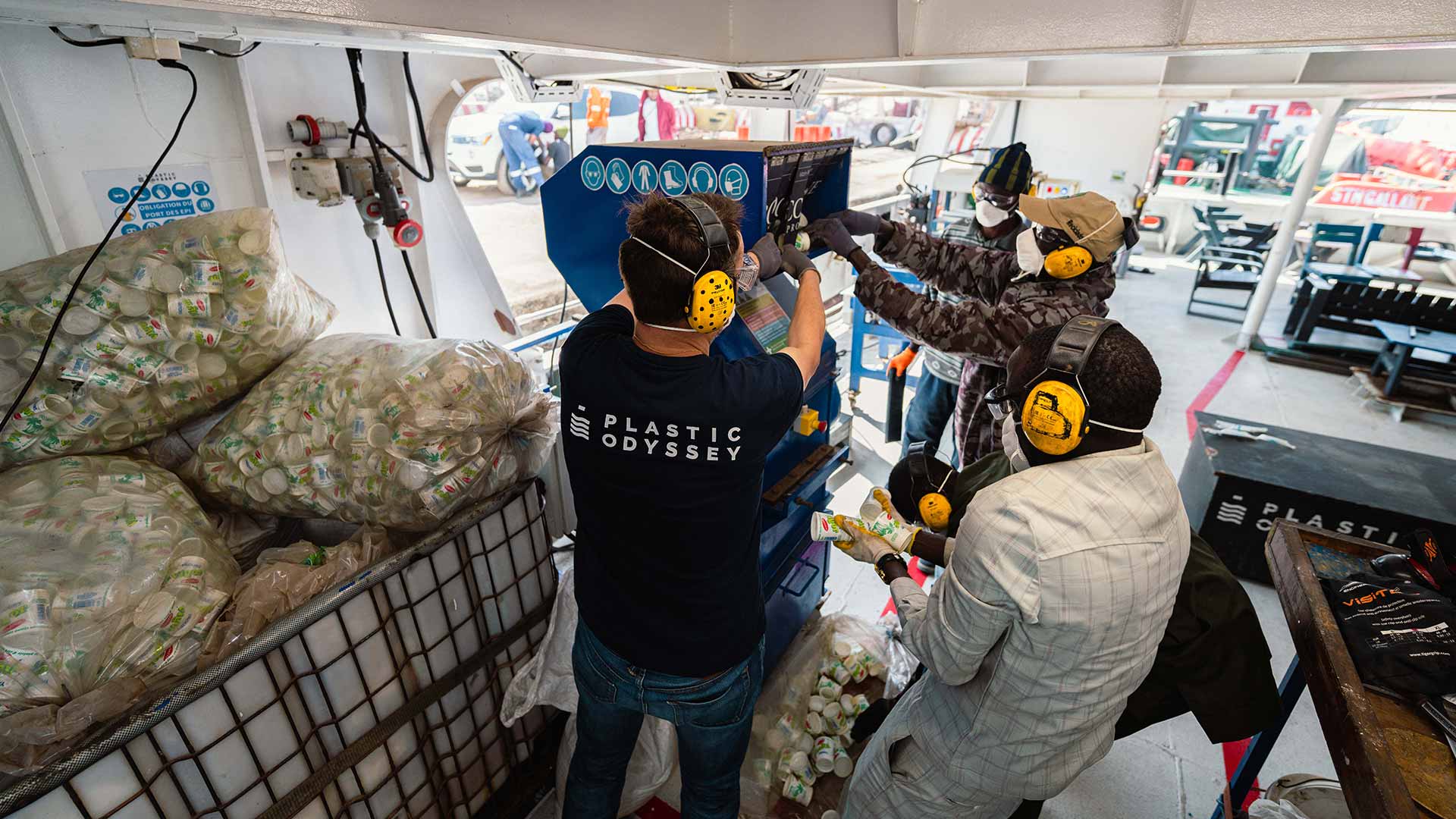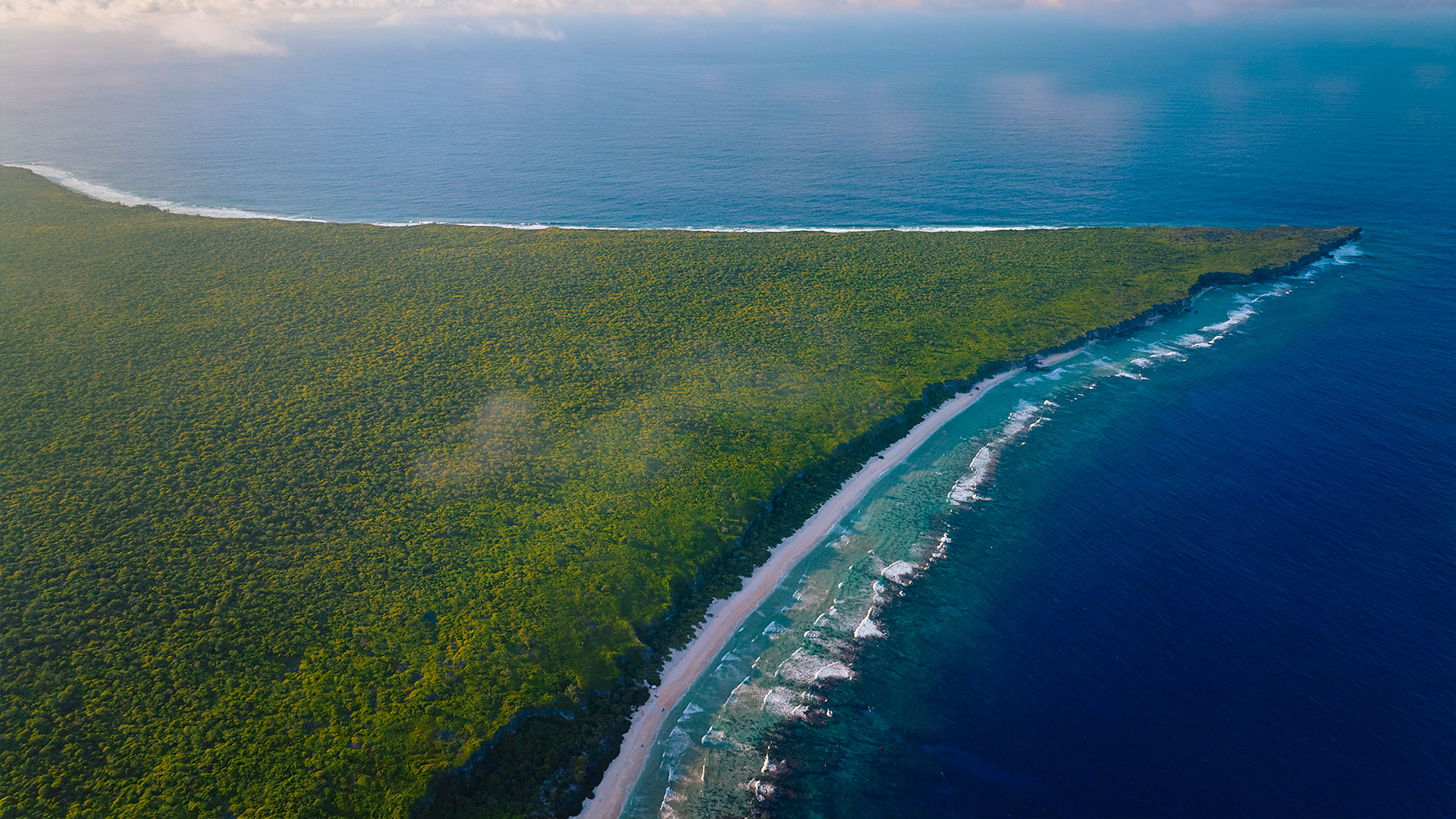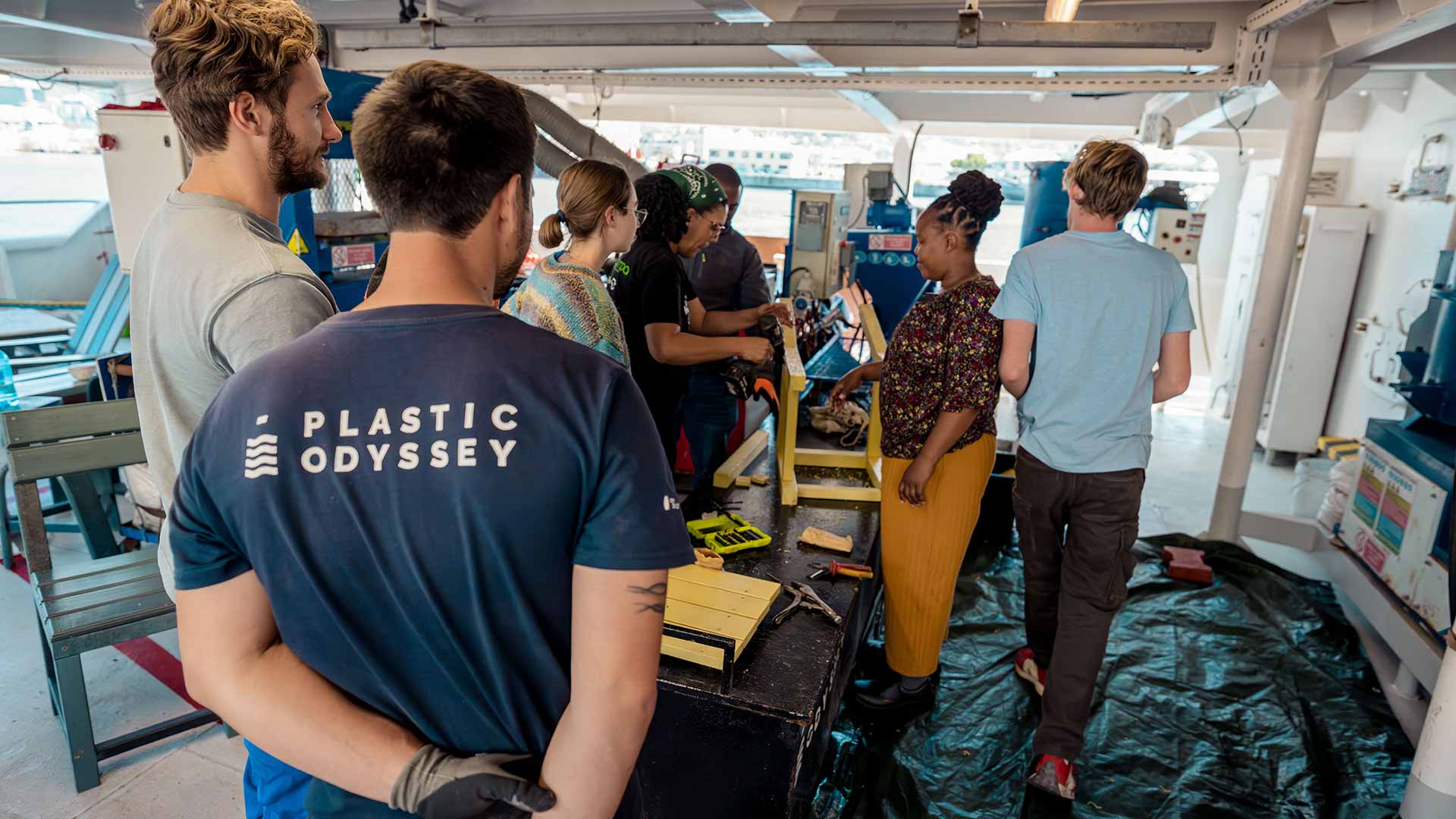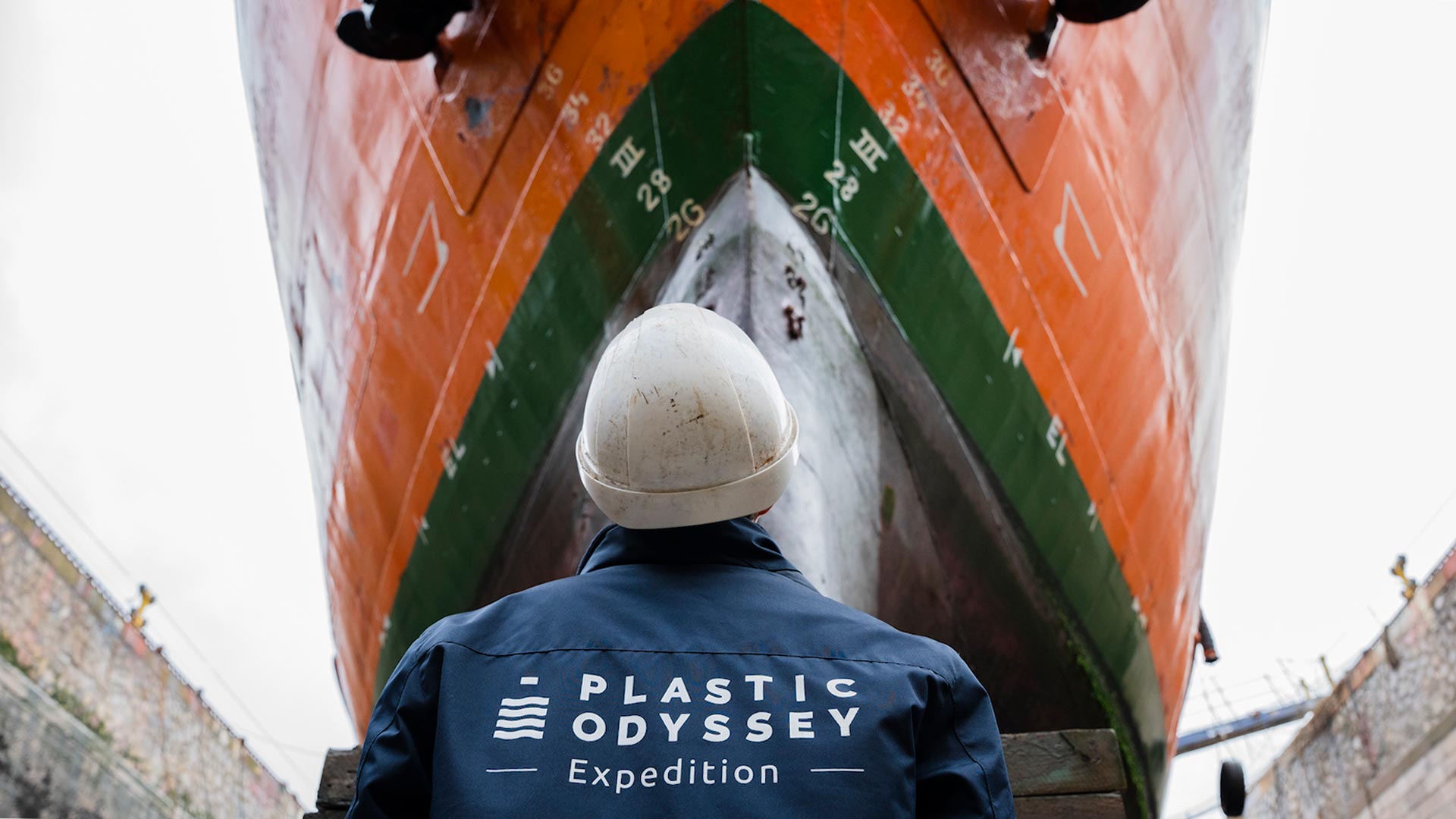
Written by Alexandre Dechelotte, CCO and co-founder of Plastic Odyssey.
Update on Wednesday, March 3rd
It all started 16 months ago… The beginnings of the Plastic Odyssey vessel
October 9th, 2019
Victory! Plastic Odyssey becomes the proud owner of a 40-meter research vessel. After several days at sea to test its adequacy with the project’s ambitions, Simon, Bob, and I arrive in Boulogne-sur-Mer.
We disembark with two certainties. First, the vessel is capable of crossing a beautiful, rough sea without flinching. Second, we are finally, surprisingly, doing quite well. This crossing was a first for Bob, who discovered offshore sailing, as well as a good booster shot for Simon and me after more than 3 years without sailing. Fatigue and seasickness (almost) didn’t get the better of us.
As soon as the closing of the ship was complete, we changed the original name “M/V Victor Hensen” to “M/V Plastic Odyssey” (“MV” for Motor Vessel). Immediately, we start the fitting out and modification work which should last 6 to 8 months.
The departure is planned for June 2020, once the new deck at the stern, to accommodate the recycling machines, the transformation of two cabins and the creation of a large conference and reception room, is installed.
But by the end of February 2020, when covid-19 was just about to set foot in Europe, an upsetting discovery was made. Asbestos was detected on board. The shipyard was immediately stopped and the crew had to disembark. It was a hard blow for the whole team.
The following weeks are entirely devoted to the realization of numerous analyses. And we start to understand day after day the extent to which this discovery will impact all aspects of the project, being the financial aspect, human wise, and schedule.
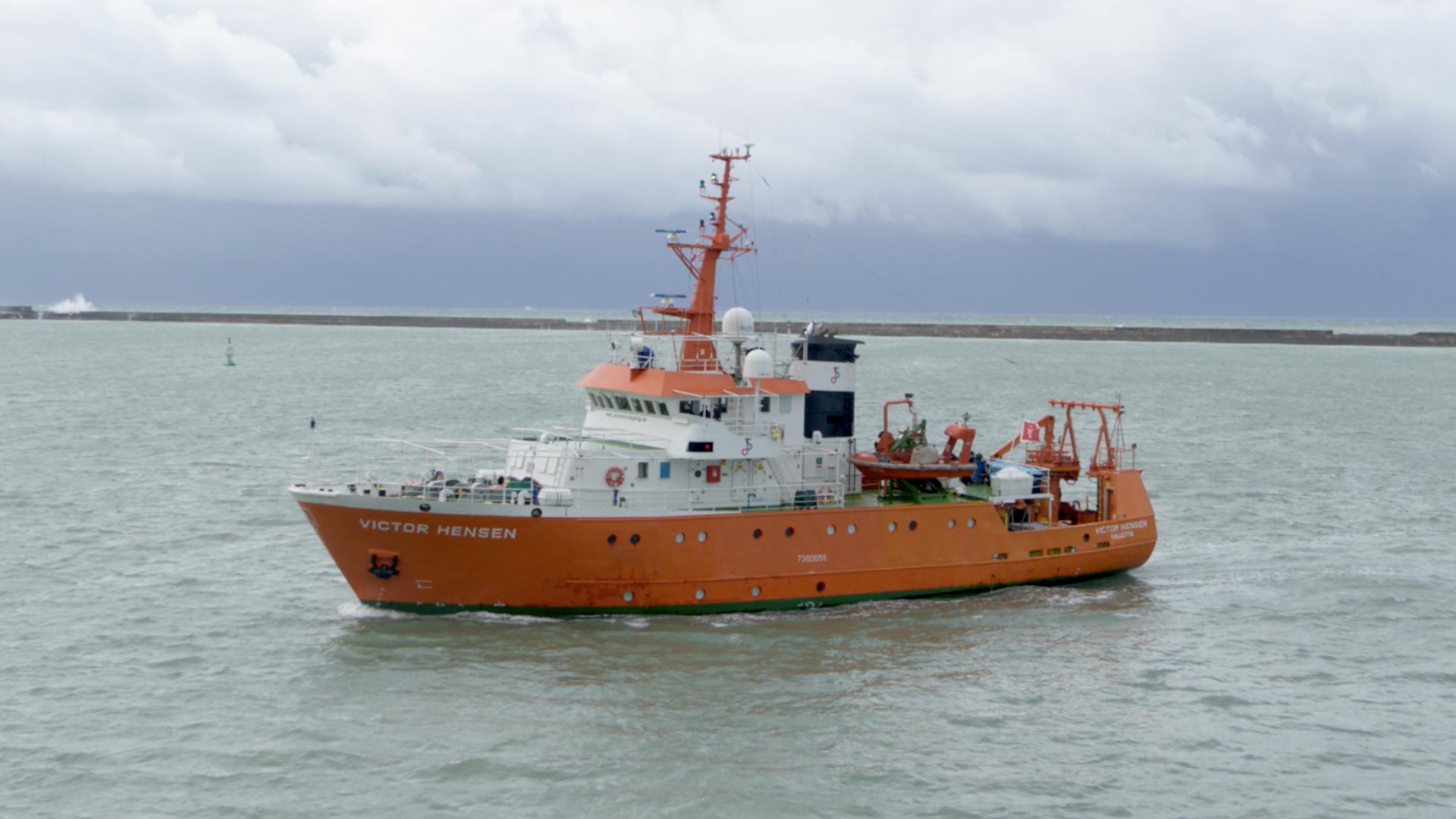
This discovery is all the more difficult to accept that before choosing this vessel, we had visited several others that could have suited our needs but that we refused to buy because they might have contained asbestos. Besides, for the Victor Hensen, we had in our possession a certificate that guaranteed us that it did not contain any asbestos, which therefore led us to believe that we had avoided this risk.
In March, work began to remove the fibers found in the partitions. And when all over the world, work, travel, and social life were on hold with the spread of covid-19, for us, the work had only just begun. That’s when the nightmare started.
Update on Thursday, March 4th
12 months ago: The Deconstruction of the Vessel Takes Place
March to December 2020
In the space of 6 months, we carry out three successive phases of asbestos removal on board, reluctantly and gradually deconstructing everything that remains functional on the vessel. Part of this work takes place in Boulogne-sur-Mer, then in Dunkirk, where we plan to do the bulk of the work that awaits us once this nightmare is over.
By removing contaminated partitions, floors, and ceilings, we discover the extent of the work that awaits us for both the remediation and reconstruction. Within a few months, all the furniture is removed in the cabins and all living spaces. Only then will all (or almost all) the partitions be dismantled, followed by the floor coverings. The ship quickly becomes a large coworking space on several levels! We have electric cables hanging everywhere inside, and pipes are being cut. The vessel is unrecognizable every time I go there, even if it is a few weeks apart.
Yet, despite the bad news that we keep on discovering every day, we are truly lucky! The crew keeps on smiling and remains unfailingly optimistic.
The work is following its course, one issue after another, the challenges are taken up, and we have been going through the trials with increasing serenity. The closer we get to the bottom, the more we’re convinced that the vessel’s rebirth is just around the corner.
Thank you
to all of those who kept smiling during this complicated period. Special thank you to Daniel Cron, our friend, and captain with a thousand stories and millions of jokes that keep on motivating an entire country to which a third confinement would be announced (…) ;
to Fanch, our chief engineer and “historical pillar” who devoted himself body and soul to the ship for many months;
to Theo, who arrived in a hurry against the backdrop of the confinement and has been as motivated as ever since!
to Gwénaëlle, for her help of course, but also her laughter and the discovery of a more “local” facet;
to Corentin our trainee for his daily support, who came out of this unusual boarding! To Marielle who has always been radiant through the trials, whose smile never leaves, and who has already given since the very beginning.
To Mathilde, Apolline, Cédric, Louis, and many others!
Without all of you, this project could never see the light of day.
And finally, a thought for Gildas Diraison, the first – and only to date – commander to have sailed our vessel (in rock’n roll conditions by the way, and who left us shortly afterward).
Update Friday, March 5th
3 months ago: The Beginning of the Rebirth
December to March 2021
After very long months of sliding on a downhill slope, the trend is finally shifting! The spirits are in good shape, and the discovered issues are solved one after the other.
The vessel is being prepared to welcome its brand new deck that will host the recycling machines. The vessel is being profoundly modified, so we have to project ourselves into the desired functionality of each space (despite the visual clutter of the shipyard).
Bob orchestrates the work and regularly goes on board. He works hand in hand with Laurent, working with us for the occasion thanks to our partner SETEC. Laurent is in charge of managing the overall planning of the construction site.
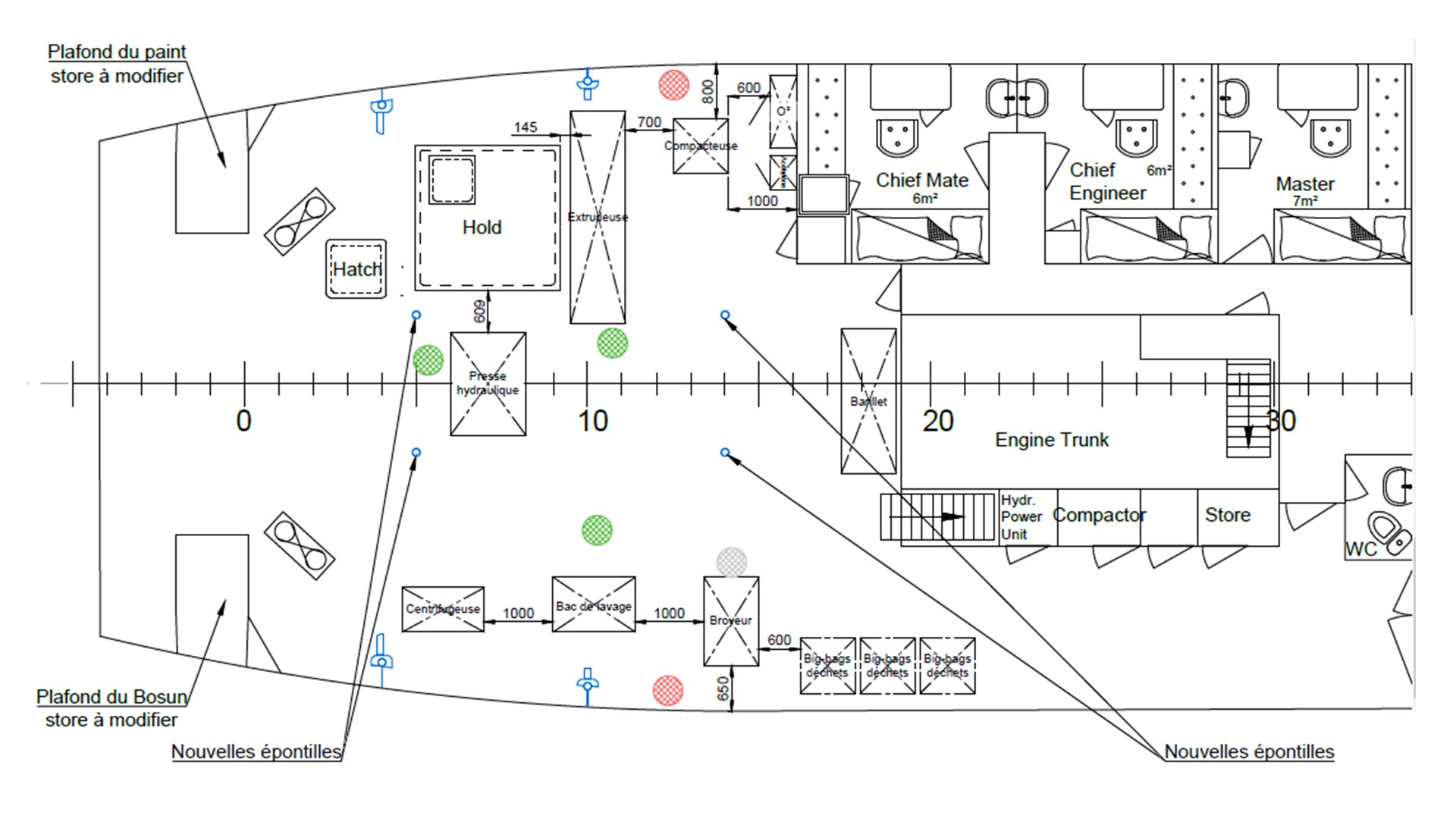
The new deck designed by a Sofresid partner design office was manufactured and assembled on the aft part of the vessel beginning of December. The area dedicated to the recycling workshop now covers two hundred square and will soon house the ten technologies that the technical team is preparing in Marseille. Those are to be discovered very soon!
On the morning of December 23rd, two days before Christmas and in the freezing cold, the Plastic Odyssey vessel finally reached the dry dock.
In a few hours, the water of the dock n°5 is emptied, and the ship now rests on its keel.
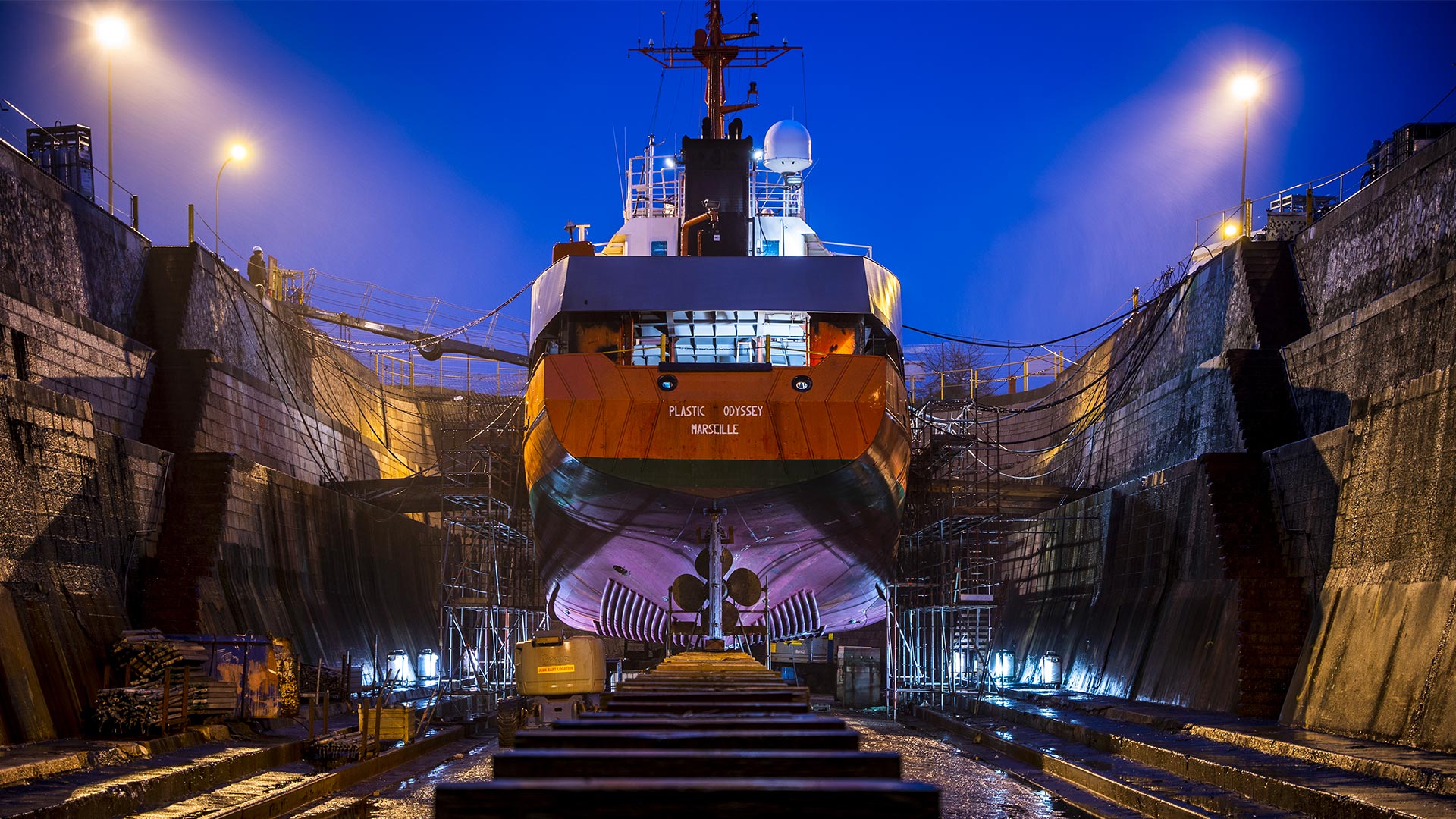
Scaffoldings are mounted immediately for work on the hull to begin.
It’s impressive to see how fast everything is moving. Anchors and chains are unfurled on the bilge; the hull is reinforced where thickness measurements are insufficient; the bow thruster is taken out for overhaul, and the propeller shaft and blades are removed.
In February, the hull of the vessel is ready to be repainted. The painting stage is not the most complex part of the shipyard, far from it, but it is one of the most striking and concrete steps. In only a few days, the vessel is completely transformed. It is now in the colors of Plastic Odyssey.
Save The Date
Presentation of the Vessel
Join us next Tuesday (March 9th) to discover the vessel’s new look, on the occasion of its relaunch, live from the port of Dunkirk
Latest News
Senegal: Back in Dakar After Three Years Around the World
Discover the plastic waste recycling entrepreneurs who participated in the training program aboard the ship in Dakar, Senegal....
Why Clean Up the Places No One Lives? Plastic Odyssey’s New Mission with UNESCO
Logistically challenging, ecologically sensitive, rarely visited by humans and covered in plastic. Plastic Odyssey is committing to cleaning up some o...
South Africa: a well-established local plastic waste recycling ecosystem
Discover the plastic waste recycling entrepreneurs who participated in the training program aboard the ship in Cape Town, South Africa....

